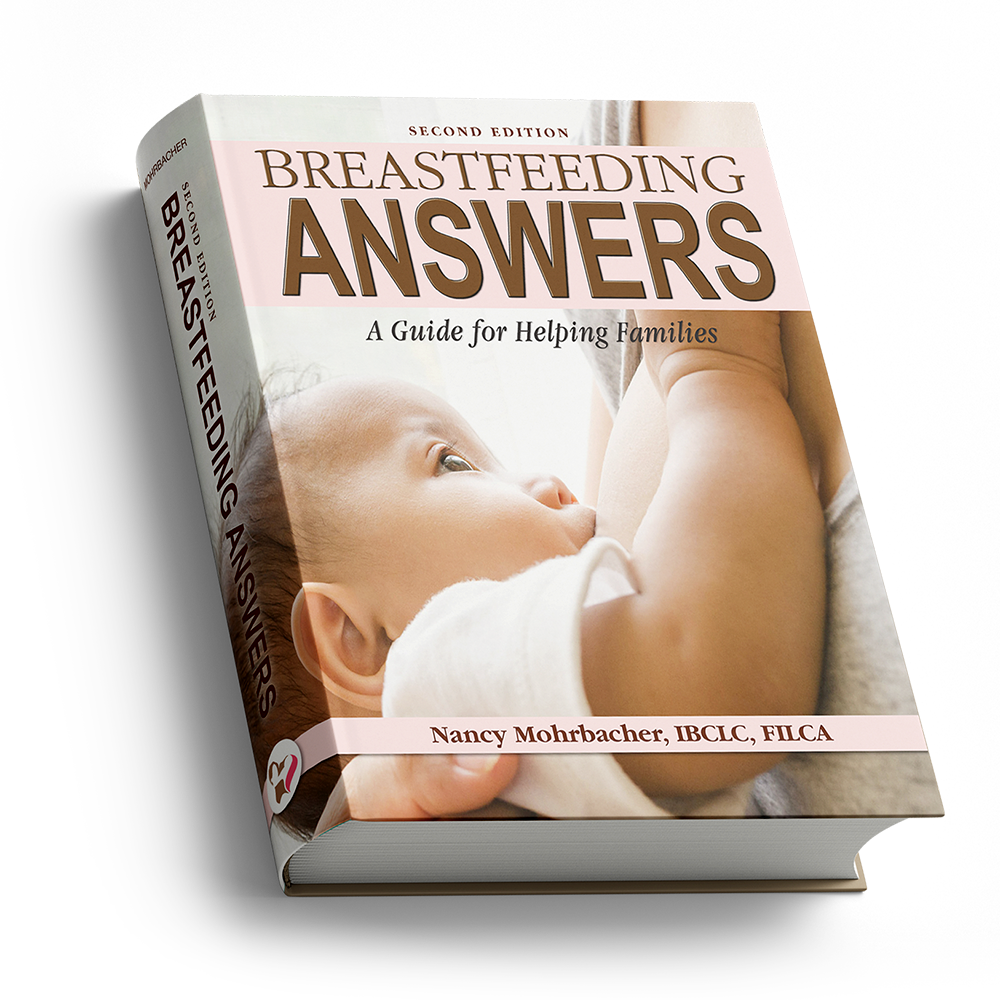Do Breastfeeding Babies Need Extra Iron at 4 Months?
/Susan Burger, MHS, PhD, IBCLC, my guest poster today, maintains a private lactation practice in New York City. She is one of my favorite scribes on Lactnet, our professional listserv. Her doctorate in nutrition and her work with breastfeeding mothers and babies in developing areas of the world add weight to her insights into this controversial topic .
Should exclusively breastfed babies be routinely supplemented with extra iron? Yes, according to the Committee on Nutrition of the American Academy of Pediatrics (AAP) in its recently issued Clinical Report.It justifies this recommendation by citing its “concerns that iron deficiency anemia and iron deficiency without anemia can have long-lasting detrimental effects on neurodevelopment.”
As a mother myself and as someone who worked for many years on large-scale public health nutrition programs for mothers and children in developing areas, I certainly want the AAP to fully investigate and make solid recommendations about the potential impact of iron deficiency on cognitive development.
In the late 1980s when I did my doctoral studies in nutritional sciences at Cornell, it was common knowledge that much of the iron that is stored by the fetus occurs in the last trimester of pregnancy. The closer to 40 weeks of gestation, the better the iron stores at birth. More recent evidence has been accumulating that clamping the umbilical cord sooner than 2 minutes after delivery may deprive infants of a last and relatively substantial contribution of iron from the placenta to the newborn’s iron stores.
Over 20 years ago, we knew that the iron in human milk is easily absorbed and that the iron added to formula is not and that extra iron may even interfere with absorption of iron from mother’s milk. From the evidence at that time, we generally accepted that healthy full-term babies did not need additional sources of iron until they were around 6 months old. In fact, a 2009 study reinforces this assumption. The prevalence of iron deficiency was only 3% among otherwise exclusively breastfed infants who were randomly assigned to receive a placebo between 1 and 6 months of age.
So, I was expecting the AAP Committee on Nutrition to recommend ways to reduce preterm deliveries and premature cord-clamping and to remove barriers to exclusive breastfeeding for the first 6 months. Instead, the Committee’s ONLY recommendation was to start supplementing term breastfed infants with iron at 4 months.
In puzzlement, I thought perhaps the Committee was privy to some new information of which I was unaware. So, I carefully read the rationale for the recommendation and was surprised to see that it cited one study. Again puzzled, I thought perhaps this one study was so astoundingly thorough that it upended all the other evidence I had read. So, I read its methods section carefully.
My expectations were dashed. The sample size was small; only 77 babies were randomly assigned to receive either an iron supplement or a placebo at the start of the study. The drop out rate was high; 43% of the infants had dropped out by the time that developmental tests were administered at 13 months of age. Compliance was low; study babies received the iron or placebo only 56% of the time they were supposed to receive these.
Furthermore, the study subjects do not match the population considered by the AAP Committee on Nutrition. The study babies were not “exclusively breastfed” as mentioned by the Committee; the researchers classified these babies as “breastfed” even though a few were given up to a bottle of formula a day from the start of the study and most were drinking formula by 6 months of age. The study babies did not start iron supplementation at 4 months as recommended by the Committee; the researchers started iron supplements or placebos at 1 month of age and continued for another 5 months. So we really don’t know if the results would hold up among a group of infants who were started on iron supplement at 4 months of age and otherwise receiving nothing but mother’s milk until 6 months of age.
Finally, the sample size was not nearly sufficient to evaluate some of the potential harmful effects of iron supplementation among babies with healthy iron levels that were found in other studies, such as increased risks of infection and slower linear growth.
To the authors’ credit, they did not extrapolate beyond the findings of their own study when they wrote that a “larger study that focuses on the long-term developmental outcomes is needed before recommendations can be considered regarding the whole population of breastfed infants.” Yet, the Committee went ahead and made a blanket recommendation anyway.
I thought perhaps I was alone in my thinking when I read the long list of committees and groups cited as contributing to the report. Then, I looked at the e-letters responses and discovered that others actually had similar objections, including the Chairperson of the AAP Section on Breastfeeding, Dr. Richard Schanler who stated:
“…. the authors acknowledge that this report was submitted for review to the Section on Breastfeeding of the [AAP]. It did not mention that we disagreed and provided our additional recommendations, 2 years ago. The manuscript infers that the Section, along with many other groups, endorsed this report. This is wrong and will mislead the medical community. We would welcome a discussion of science and changes in recommendations that are evidence-based. We do not have issues with screening at-risk populations. We further request that the section “Development of this Report,” be retracted and removed from publication.”
I agree with Dr. Schanler that a discussion of the science is important. In the meantime, I have far more confidence in the previous recommendations of the American Academy of Pediatrics that iron supplements should not be routine for exclusively breastfed babies before 6 months of age. As solids are introduced, selecting an appropriate mix of foods that include those rich in iron may circumvent any need to use supplements even after 6 months of age.




